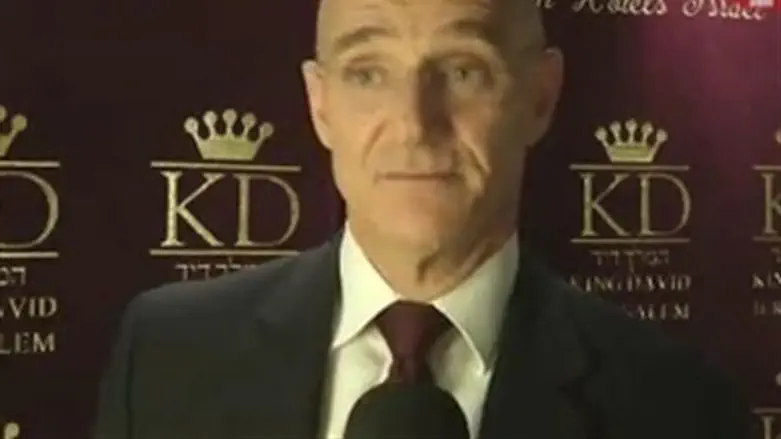
The outgoing European Union ambassador to Israel, Andrew Standley, on Monday said that while the EU was “committed to the security and economic success of Israel,” the Union felt fully justified in labeling products made by Jews in Judea and Samaria as “settlement products.” At a press conference in Jerusalem, Standley said that he was “aware of the emotional aspect of labeling goods from the settlements, and of Germany's declaration that it supports such labeling.”
The policy was not anti-Israel, said Standley, but “pro-consumer,” enabling “European consumers to identify products that come from the settlements” and other areas of conflict. “For the past decade the EU has been labeling products from the settlements,” he added, and the Israeli government has not protested.
Standley also presented his thoughts on the future of Jewish settlement in Judea and Samaria. “The settlements will not provide Israel with security over the long-term,” he said. “There is only one way to ensure Israel's long-term security – with two states for two peoples. We believe that the majority of Israelis support this as well,” he added.
In the end, Standley said, Israelis would have to make a choice – a limited Jewish state within the 1948 armistice lines, or a watered-down, democratic “state for all peoples” in the entire Land of Israel that would no longer be a Jewish state. “You must choose between Haifa and Hevron,” he said. “I am neither Jewish nor Israeli,” and as such he has no affinity to Israeli and Jewish religious and political history, Standley said. “But we must remember that Israel agreed to the partition plan in 1947, and in doing so agreed to the partition of the land, saying yes to Haifa and no to Hevron.”
Israelis, he said, needed to listen to their “heads” and make the rational choice, and overcome the desire of their “hearts,” which yearned for Hevron and the rest of the Land of Israel.